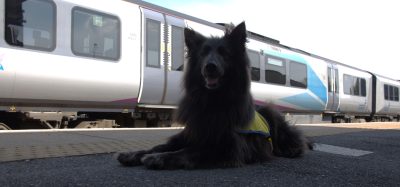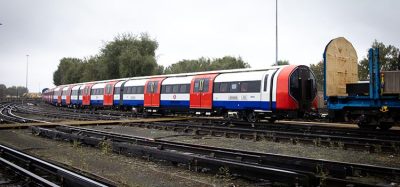Gen Z shuns tech and AI for human touch as rail competition reshapes European business travel
Posted: 25 June 2025 | Gabriel Higgins | No comments yet
New research reveals Gen Z prefers human interaction over AI, while liberalised rail markets offer business travellers improved service and affordability.


Amex GBT, hosted a media reception, yesterday ahead of Businees Travel Show Europe exploring the future of business rail travel in Europe, industry experts revealed some surprising insights: despite being digital natives, Generation Z shows a strong preference for human interaction over artificial intelligence (AI), while rail travel is experiencing a competitive renaissance that could reshape the way we think about intercity business mobility.
Gen Z’s unexpected tech attitudes
Opening the session, behavioural psychologist Dr. Tara Quinn outlined new research showing that Gen Z, often assumed to be AI-enthusiasts, are not as uniformly tech-forward as expected. While older assumptions labelled them as “gung-ho” for technology, real-world behaviour tells a different story.
“Gen Z respondents were actually more likely to want to speak with a human when they had a question,” Tara said, adding that this contradicts expectations built around their immersion in technology from birth.
The shift, she suggested, may come from cognitive and behavioural changes caused by constant screen exposure: “There’s research suggesting their brains are recognising faces less – they’re so used to being on devices.” Rather than turning to AI for in-depth problem solving, Gen Z tends to seek quick answers, a pattern aligned with their highly stimulus-driven cognitive styles.
Designing for the “Quick Fix” generation
For industries like travel, which are increasingly reliant on digital platforms, these insights are crucial. Tara emphasised the need to avoid a one-size-fits-all approach: “We tend to push solutions and then wonder why people get defensive. Instead, we need to offer choices that align with different values, some may prioritise sustainability, others productivity or wellbeing.”
She urged companies to shift their messaging to meet travellers where they are: “The trick is to frame rail not as a sacrifice, but as something that improves your quality of work and life. Whether that’s pressing pause, reading a chapter, or watching the world go by, these things feed into better cognition and decision-making.”
Fragmentation and innovation on the rails
Mark Smith, better known as The Man in Seat 61, offered a sharp critique of rail’s greatest weakness: fragmentation. While airline systems tend to follow interoperable standards, national rail operators have historically developed bespoke systems that don’t play well together.
Smith illustrated this with a comparison: “In Germany, you pay for a journey; in France, you pay per train. That fundamental difference makes it hard to integrate systems.” However, he pointed to promising moves toward standardised booking platforms across borders, a crucial step for boosting international rail’s appeal.
Despite these challenges, Smith was optimistic: “If you put more effort into the booking process, you get a lot more out of the journey. It’s worth it.”
A major theme of the session was the success of liberalised rail markets, especially in Italy and Spain. In Italy, the presence of competitors like Italo and Trenitalia has driven up quality while keeping prices 20–25% lower than they might have been under monopoly control.
“In Spain, prices on some high-speed routes have dropped by nearly 50%, with passenger numbers up 58%,” Smith noted. “It’s proof that competition, at least for long-distance routes, benefits everyone, except perhaps the domestic airlines.”
Advice for corporate travel managers
Panel moderator David Taylor, Director of Thought Leadership, offered three takeaways for corporate travel leaders:
- Business travellers want to take the train – They value its productivity and comfort benefits.
- Sustainability is not the only message – Productivity messaging can often land better with employees.
- First class isn’t everything – But for now, it may offer the best experience for business travellers, pending wider innovation in rail offerings.
Global Railway Review Autumn/ Winter Issue 2025
Welcome to 2025’s Autumn/ Winter issue of Global Railway Review!
The dynamism of our sector has never been more apparent, driven by technological leaps, evolving societal demands, and an urgent global imperative for sustainable solutions.
>>> Read the issue in full now! <<<
Related topics
Artificial Intelligence (AI), Interoperability & Liberalisation, Passenger Experience/Satisfaction, Rail Fares/Ticket Pricing, Signalling, Control & Communications, Station Developments, Sustainability/Decarbonisation, Technology & Software








